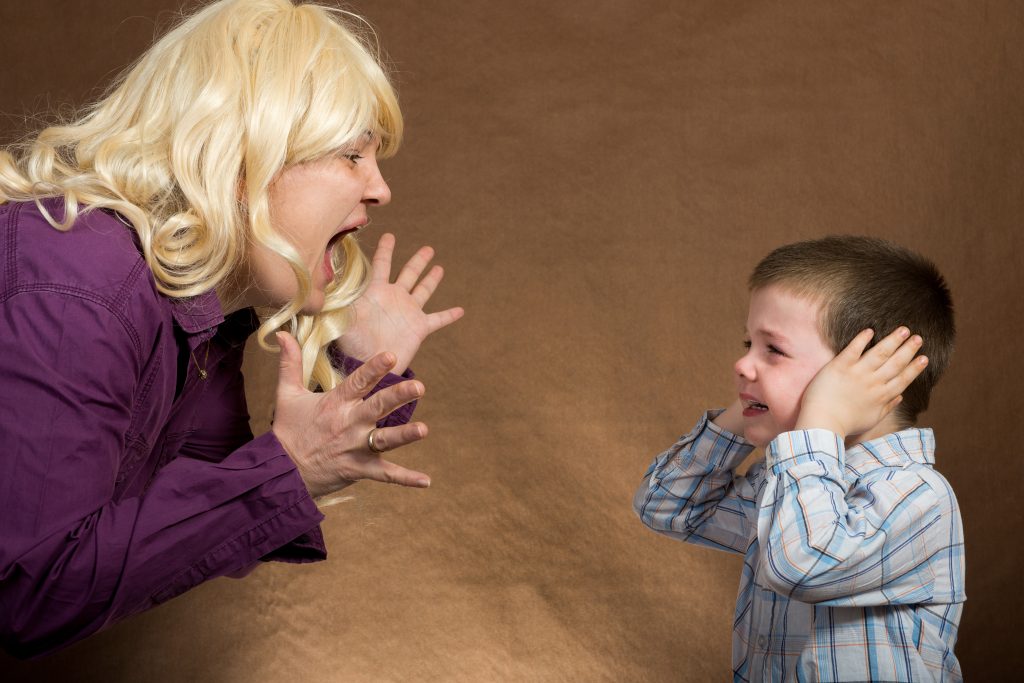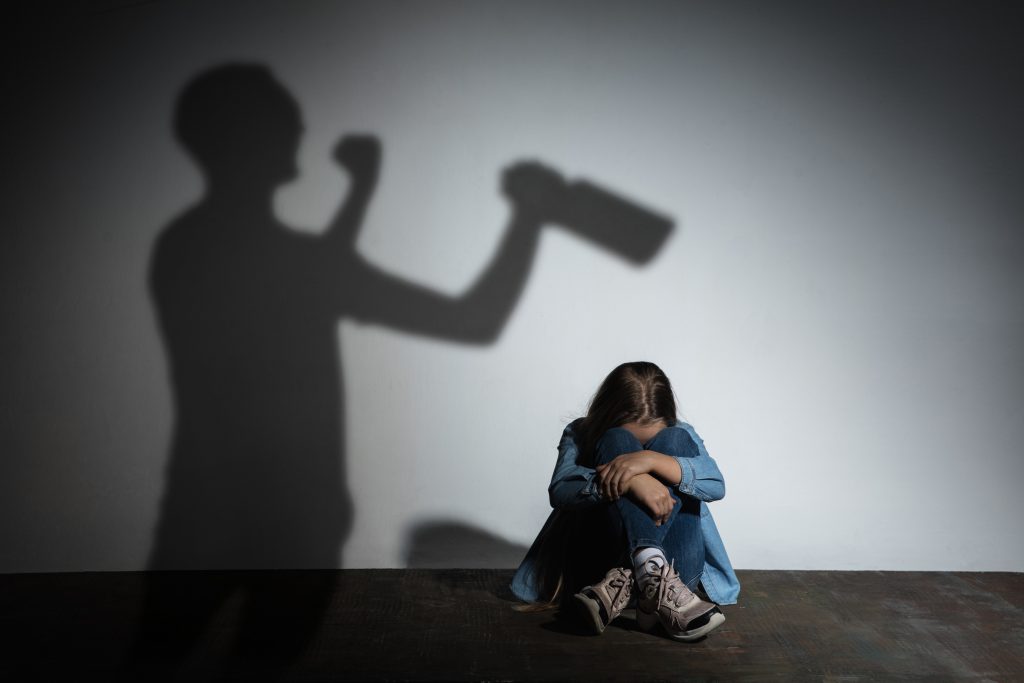When I say “family”, what comes to mind?
Does it awaken a sense of comfort and joy in you? Or does it make you feel sad or anxious?
Depending on how you grew up, and how you live your family life today, your answer will change. And it will awaken emotions you thought were long buried.
Childhood is a complex period. And it’s rarely associated only with positive feelings. Indeed, even the best parents make mistakes.
If, when you think of your family life as a child, you only have happy memories, you can consider yourself lucky. In fact, you may consider yourself a miracle.
Indeed, most people have mixed feelings when it comes to recalling their childhood. They remember happy times, but also painful ones. And that’s perfectly normal.
After all, no one is perfect and no life is ideal. Unfortunately, there are also many people who have extremely negative emotions that come to the fore when they think of their childhood.
This simple memory makes them feel uncomfortable and anxious. Why is this? Because they grew up in a toxic family environment.
Yet even when things are going badly, it’s very difficult to realize how dysfunctional your family is when you’re young. In fact, it’s only as an adult that you realize that your family environment was toxic.
What’s more, it’s when you start forming your own family that the negative memories and unhealthy emotions take over.
Toxic or dysfunctional family dynamics can be hard to recognize, especially when you’re still caught up in them. So how can you tell if your family is toxic?
Think back to your childhood and try to remember the following signs:
1. Your parents didn’t satisfy your needs

Let’s face it: nobody’s perfect. But let’s face it, the primary role of parents is to meet their children’s needs. Of course, they can make mistakes or forget things.
For example, they may be late one day to pick you up from school. Or they may forget that you have to go to a birthday party and buy the present at the last minute.
These mistakes aren’t serious if they’re not part of your family’s normal routine. So, if they are punctual, keep in mind that your parents were very busy and overwhelmed with obligations.
But parents must ALWAYS meet your primary and basic needs. So discipline had to be accompanied by affection. Your health and mental well-being had to be priorities.
Education had to be accompanied by limits, and playtime had to balance chores and obligations.
2. Your parents set unrealistic goals for you

The older you got, the more responsibility you took on within your family. And that’s perfectly normal. That’s how you learned to be independent and develop skills.
For example, at first, you were expected to set the table. Then you were expected to wash the dishes or do the laundry. But little by little, these obligations began to take up all your time.
From looking after your brothers and sisters to ironing, you had no time for yourself. So you stopped playing, slept less and less and didn’t do your homework.
Sound familiar?
If you’d grown up in a toxic family, the tasks you were given were beyond comprehension. And your life as a child was burdened with chores.
For example, you were expected to do homework with your siblings, wash them and cook for them. You were also expected to punish them if they got into trouble, or console them if they cried.
But these obligations shouldn’t rest on a child’s frail shoulders.
3. You don’t know compassion or respect

They say you can’t choose your family. And it’s true… That’s why misunderstandings and arguments can resurface. And it’s not something you should worry about.
After all, you’re a person in your own right, and you’re entitled to have opinions or desires that differ from those of your parents. Unfortunately, the way your parents criticize your choices gives rise to contempt.
When you think of them, you feel disdain and even anger. Why do you feel this way? Because they never showed you what love and compassion were.
For example, your parents delighted in mocking your fears or weaknesses. They outrageously criticized your decisions and deliberately destroyed your self-esteem.
A healthy family may not always agree with you, but they still offer you love and support.
4. Your parents criticized you a lot

As a parent, it’s normal to disagree with everything your child does. After all, when you’re little, you’re still learning. You’re feeling your way..
And your parents have the right to criticize or reprimand you if you make mistakes. But within reason. You mustn’t destroy your child’s self-esteem.
If your parents’ remarks are intended to mock you rather than be constructive, you’ve grown up in a toxic home. Moreover, your parents’ criticism should not be directed at you.
It should be a reflection of your behavior.
For example, “what you did was wrong, because you hurt your sister’s feelings”. Not “Are you stupid? If, as a child, you felt inferior or denigrated, your childhood was clearly toxic.
5. Your parents controlled your every move

When you were a child, you didn’t have much freedom. Your parents scrutinized everything you did. For example, you weren’t allowed to go to a certain friend’s house because your parents didn’t like his.
Or you couldn’t go where you wanted because they didn’t trust you. You were limited in your rights, even if you’d never done anything to challenge that trust.
And this behavior is still visible in your adult life. Yes, your parents’ need for control didn’t stop when you moved out of their home.
Now they’re trying to push you to make the choices they want you to make. When it comes to your professional, love or friendship life, they still have their say.
And if you don’t choose what they strongly recommend, they get angry. As if that were a condition for their liking you. Toxicity is clearly visible in such cases.
6. You were verbally, physically or psychologically abused

When we think of abuse, we immediately think of physical abuse. While this is the most obvious form of abuse, it’s not the only one. And I’d even go so far as to say it’s not the worst.
But beware! Any abuse is intolerable within your family or your love relationship. And if you feel that your parents are continuing to dump on you, you need to put a stop to it right away.
Abusive behavior can include: any gesture of a s*xual nature, insults, physical or emotional violence, moral harassment or belittling.
If you argue with your brother and kick him, only to make up later, that’s normal. Getting kicked by your father is not.
Neither is hearing your mother say that you’re a good-for-nothing and will end up selling your body to survive.
7. Your parents (or one of your parents) abused substances

Addiction to alcohol or drugs is a disease. And an addict is not necessarily a bad person. Unfortunately, hard-core addictions lead to toxic behavior.
And children are the first to suffer. Abrupt mood swings, emotional or physical abuse and encouraging others to use are all unacceptable behaviors.
“So, don’t you think you’d like to join Daddy for a little drink?” or “Wait, I’ll make a man of you…” are not phrases a parent should utter to a child.
Or even to other adults. Besides, children who grow up with substance-dependent parents tend to reproduce the family pattern, so beware!

